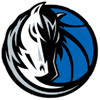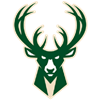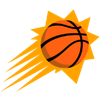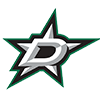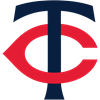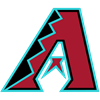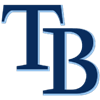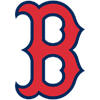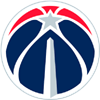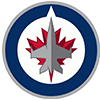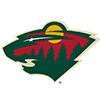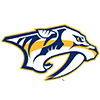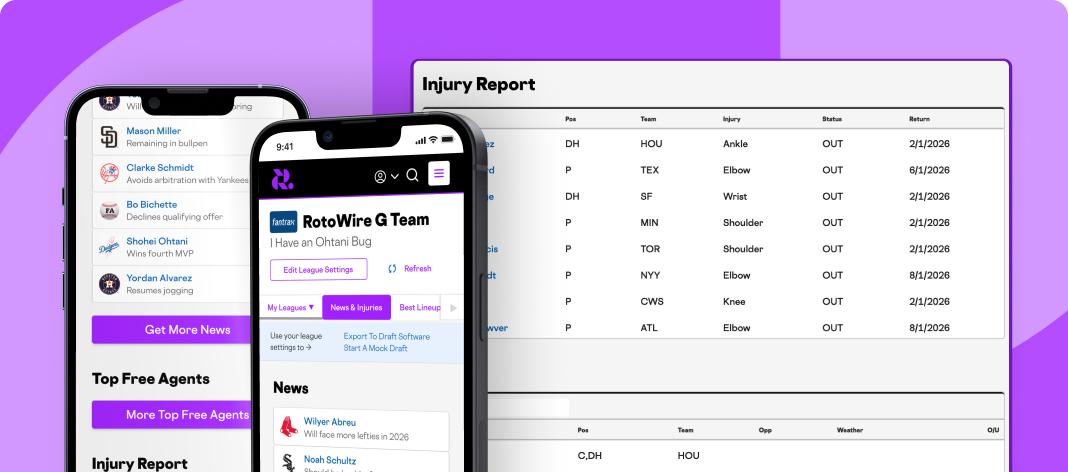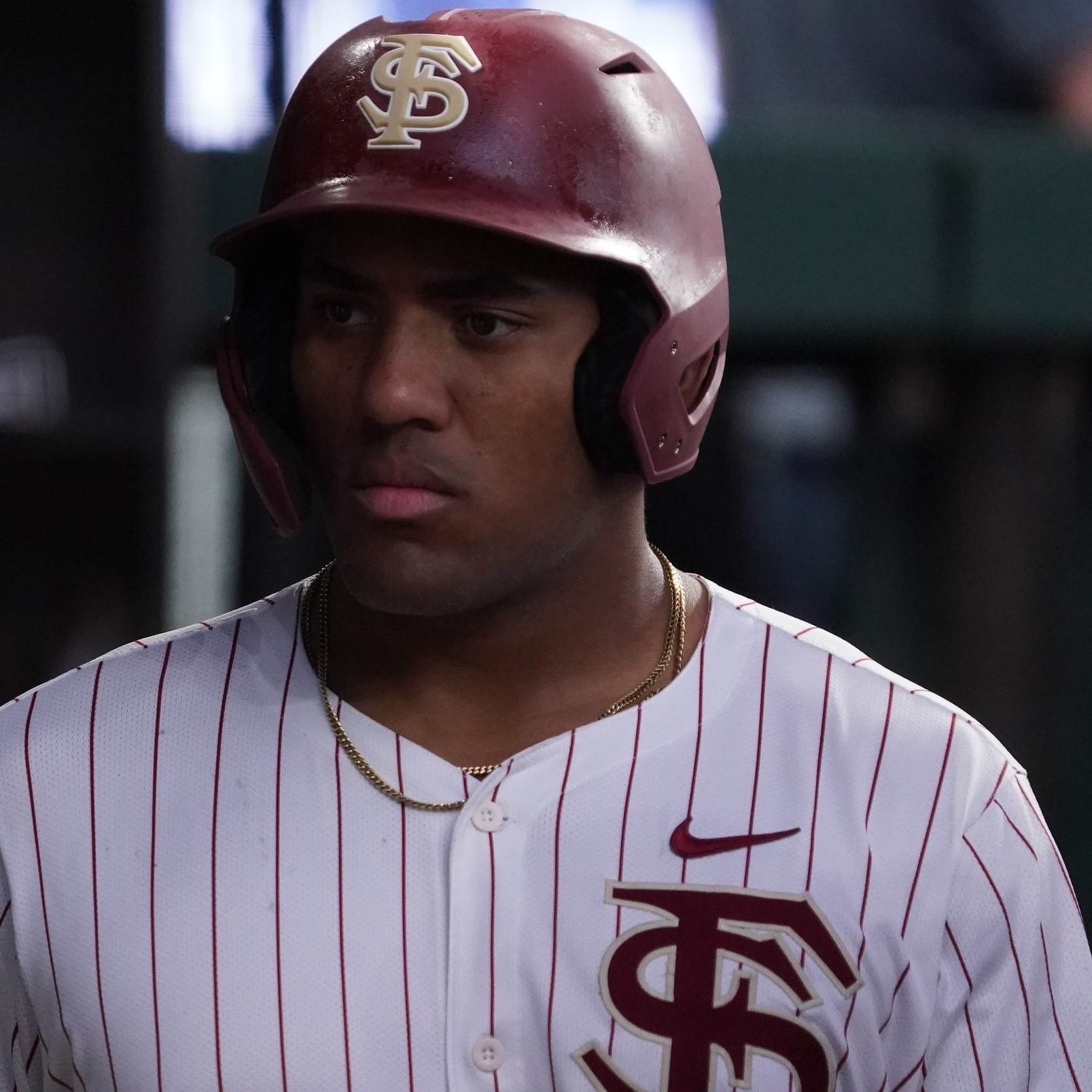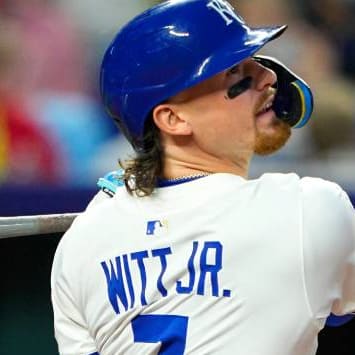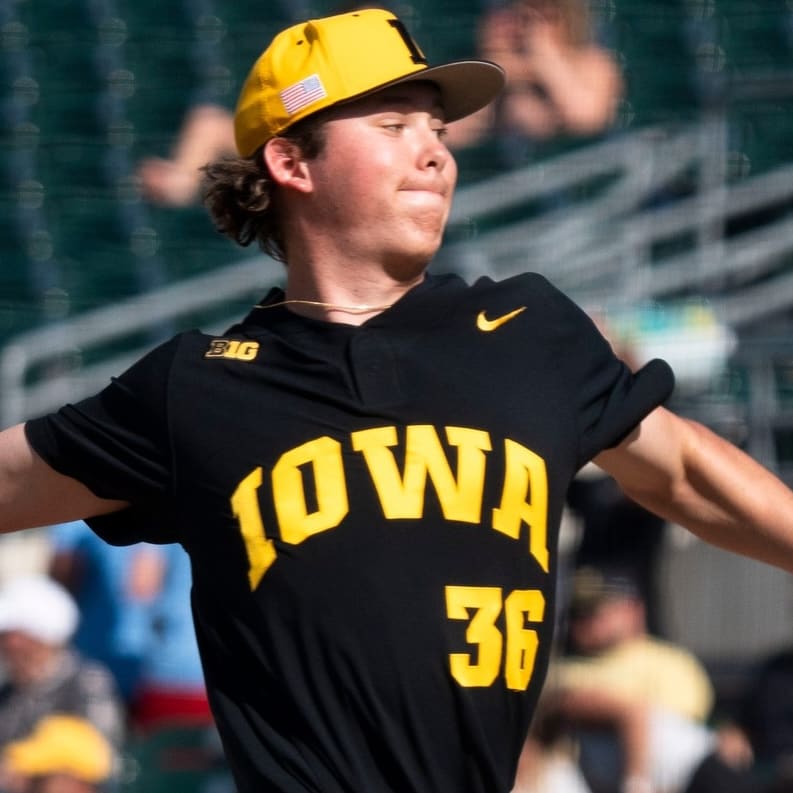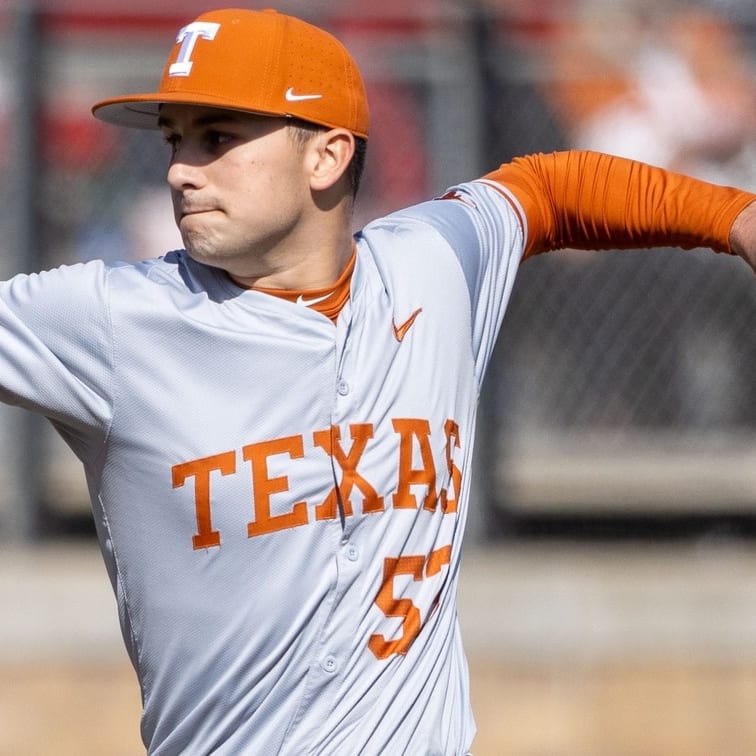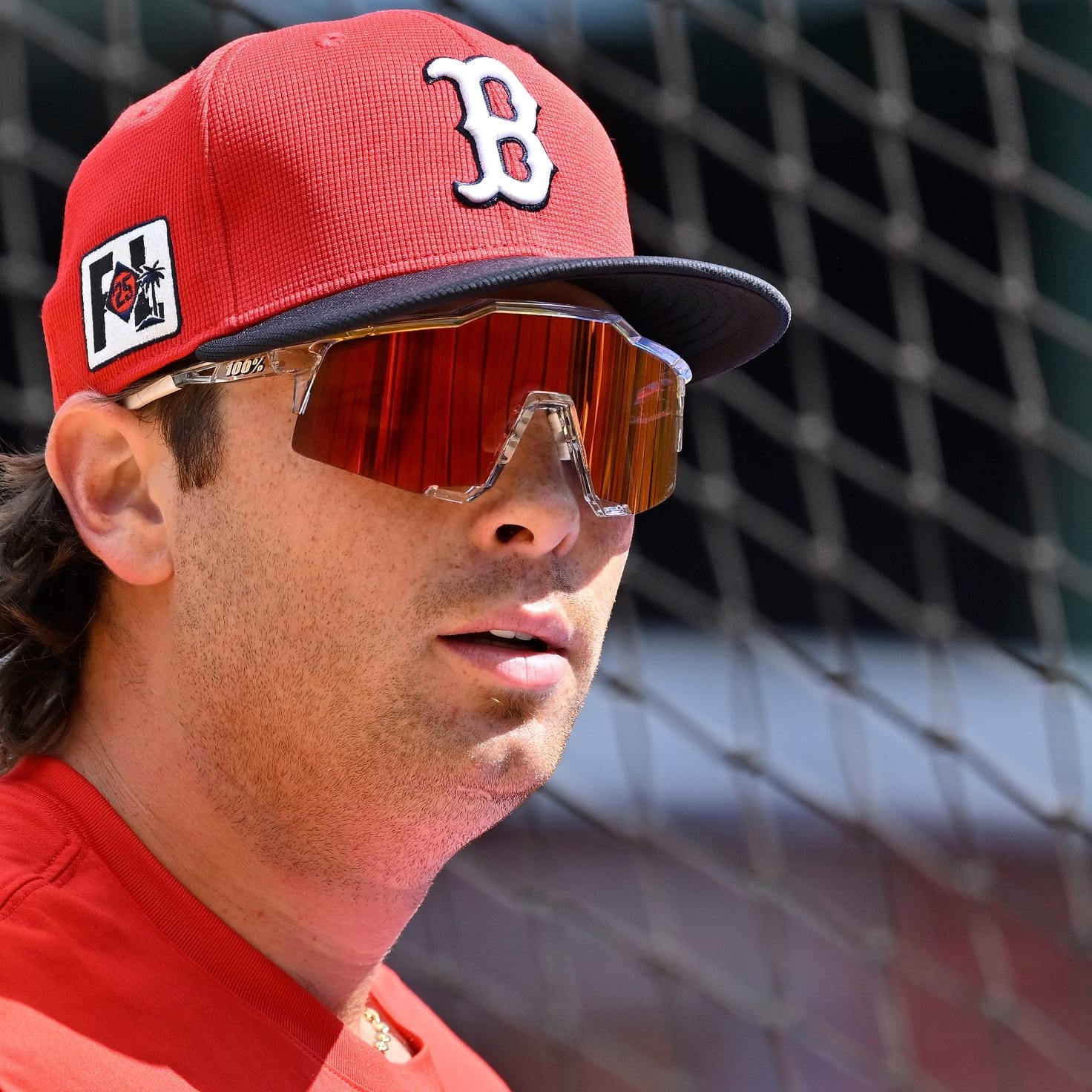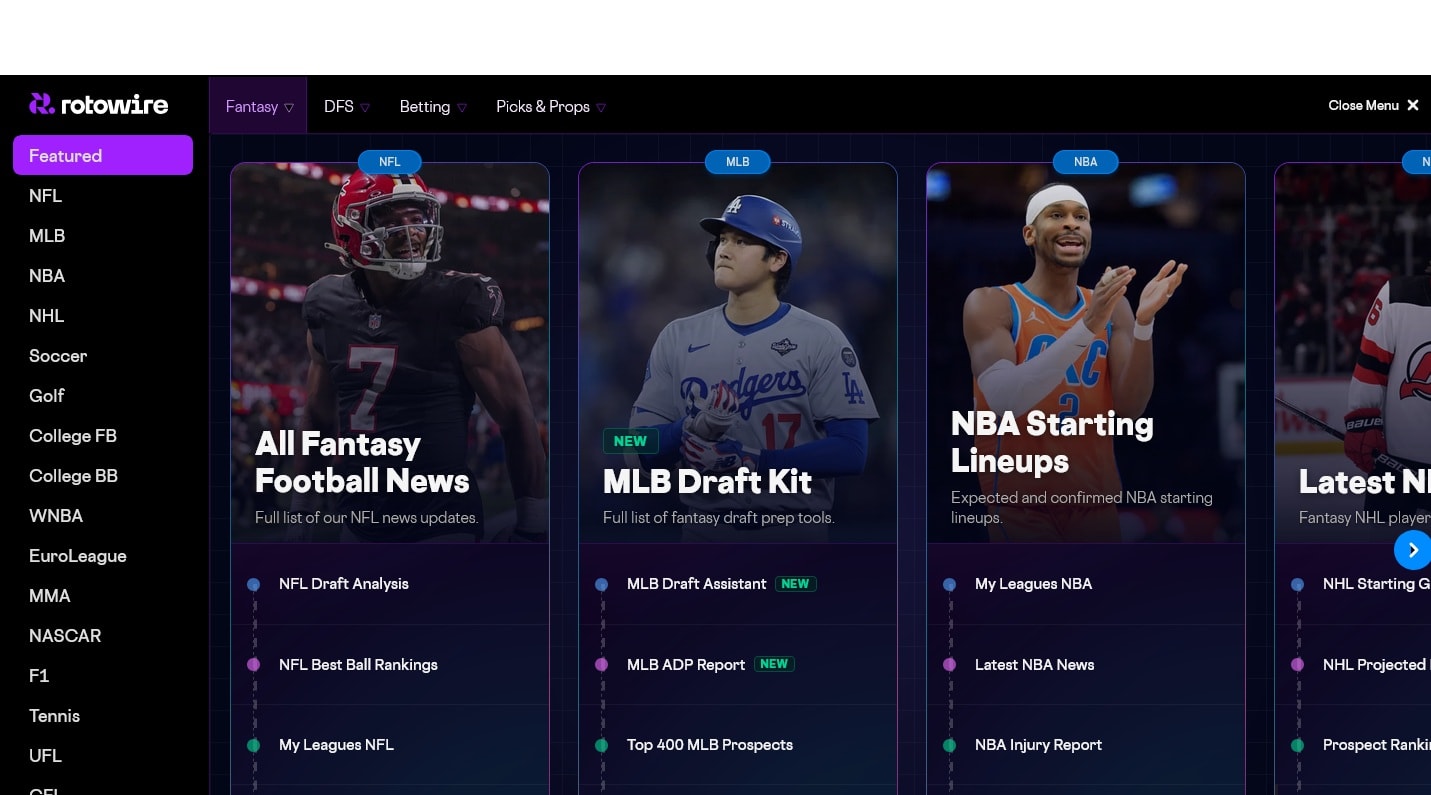For the fourth year in a row, I will be going division by division, providing analysis on every fantasy-relevant prospect in baseball while also ranking those prospects in their respective systems. This means there will be 30-plus prospects ranked in certain systems and less than 15 prospects ranked in others. There is no point in listing an irrelevant prospect just to reach an arbitrary total of 10, 20 or 30. Similarly, it is unfortunate to not include information on highly relevant prospects just because that prospect was not one of his team's 10 or 20 best.
The second installment takes us to the 99 prospects you need to know in the National League Central.
I wrote the outlooks for most of the guys in the top 250 or so of the top 400 prospect rankings, so if you want more in-depth analysis on someone, check out their player profile. The order of the players on the back half of the top 400 will be evolving throughout this process, so the 400 may not be up to date with the team rankings in this article. Listed ages are as of 4/1/20. Feel free to ask me any prospect-related questions in the comments section or on Twitter.
CUBS
1. Nico Hoerner, 2B/SS, 22, Triple-A
The hope with Hoerner is that he develops a plus hit tool and ends up batting first or second. The power and speed will be secondary to his batting average, but if he maxes out he
For the fourth year in a row, I will be going division by division, providing analysis on every fantasy-relevant prospect in baseball while also ranking those prospects in their respective systems. This means there will be 30-plus prospects ranked in certain systems and less than 15 prospects ranked in others. There is no point in listing an irrelevant prospect just to reach an arbitrary total of 10, 20 or 30. Similarly, it is unfortunate to not include information on highly relevant prospects just because that prospect was not one of his team's 10 or 20 best.
The second installment takes us to the 99 prospects you need to know in the National League Central.
I wrote the outlooks for most of the guys in the top 250 or so of the top 400 prospect rankings, so if you want more in-depth analysis on someone, check out their player profile. The order of the players on the back half of the top 400 will be evolving throughout this process, so the 400 may not be up to date with the team rankings in this article. Listed ages are as of 4/1/20. Feel free to ask me any prospect-related questions in the comments section or on Twitter.
CUBS
1. Nico Hoerner, 2B/SS, 22, Triple-A
The hope with Hoerner is that he develops a plus hit tool and ends up batting first or second. The power and speed will be secondary to his batting average, but if he maxes out he could be a 20/10 guy with a bunch of runs and a .300 AVG.
2. Brennen Davis, OF, 20, High-A
Davis' hit tool has been such a pleasant surprise that I think people may be slightly overlooking the fact that he isn't the 70-grade runner he was reported to be when the Cubs drafted him. Maybe he can have some .290, 25-HR, 15-SB seasons — nobody would complain about that — but that's what I see as his reasonable ceiling, and he is still a couple years away.
3. Brailyn Marquez, LHP, 21, Double-A
Marquez's velocity would make him the hardest-throwing lefty starter in the majors, if he makes it to the majors as a starter. His arsenal as a reliever wouldn't be dissimilar to Aroldis Chapman, so it wouldn't even be that big of a bummer if he had to move to the bullpen.
4. Ronnier Quintero, C, 17, Dominican Summer League
Quintero received $3 million out of Venezuela as the Cubs' top get from the 2019 J-2 class. A righty-throwing, lefty-hitting catcher, Quintero has a Gary Sanchez-esque ceiling with massive raw power and questionable receiving skills. He doesn't sell out for power, the ball just jumps off his bat. I don't usually recommend stashing catchers who are a long way from the majors, but he has the type of upside to justify such a move.
5. Rafael Morel, SS/2B/OF, 18, AZL
Signed for $850K on July 2, 2018, Morel impressed in the DSL, particularly with his 14.2 percent strikeout rate. He is a plus runner who could provide defensive value anywhere up the middle, so there is less pressure on his bat in real life and in fantasy. He would benefit from becoming less pull-happy.
6. Yohendrick Pinango, OF, 17, AZL
With Pinango, the big question is, how much will he slow down in the coming years as he fills out his 5-foot-11, 175-pound frame? He is a plus runner now and shows the makings of a plus hit tool (hit over power), but it's possible he could only be an average runner by the time he reaches the majors.
7. Alfonso Rivas, 1B, 23, Double-A
If Rivas is able to get to more power than he has shown thus far, he should hit enough to at least occupy the strong side of a platoon. The trade to the Cubs isn't ideal, as DH is no longer an option, but he could eventually replace Anthony Rizzo at first base. He is more valuable in OBP leagues.
8. Miguel Amaya, C, 21, Double-A
Amaya is significantly more valuable in OBP leagues or leagues where 30-plus catchers are started. He is a better real-life prospect, as he should be an above-average defender. I think the fantasy production will be similar to what Robinson Chirinos did last year (.238/.347/.443).
9. Chase Strumpf, 2B, 22, High-A
The Cubs basically drafted a poor man's version of Hoerner when they gave Strumpf $1.05 million in the second round out of UCLA. He doesn't project for plus power and is a below-average runner, so he really needs to hit.
10. Kevin Made, SS, 17, Dominican Summer League
The Cubs gave Made $1.5 million on July 2 as one of their headliners from that class. At 6-foot-1, 160 pounds, Made looks like he should be fast, but he's only an average runner. He should be able to stick on the left side of the infield. I don't expect the power or hit tools to be better than 50 or 55.
11. Cory Abbott, RHP, 24, Triple-A
A flyball pitcher with a four-pitch mix, Abbott logged a full season at Double-A, building up to 146.2 innings. His fastball doesn't have much zip, but he commands it well and his curveball is above-average. He could maybe be a fourth starter but is more likely to be a No. 5 starter or swing man.
12. Riley Thompson, RHP, 23, High-A
He is a little old for a pitcher who has not pitched above Low-A, but Thompson had Tommy John surgery in 2016 and was a reliever in college. He now has a four-pitch mix, headlined by a low-to-mid-90s fastball. If his secondaries continue to improve, he could pop this year or next.
13. Michael McAvene, RHP, 22, Low-A
An intriguing college reliever conversion project, McAvene has a mid-90s fastball and an above-average breaking ball. He also has a starter's frame (6-foot-3, 210 pounds) and threw strikes in his debut. If he is successful in adding a changeup, he could be a big riser.
14. Luis Verdugo, SS/3B, 19, Northwest League
A high-pedigree international signee in 2017, Verdugo took a step forward offensively last year, although he was on the older side for AZL prospects (it was a repeat tour). He has the defensive chops to stick on the left side of the infield, but the bat may end up being a little light.
15. Cole Roederer, OF, 20, Low-A
A likely left fielder who hit .224 with a 25 percent strikeout rate as a 19-year-old at Low-A? That's a pretty hard pass for me. Roederer does walk a lot and he has above-average speed, but we can observe from a distance for now. There's no shame in the Cubs only going two-for-three on their three seven-figure hitter picks in 2018 (Hoerner/Davis/Roederer).
16. Christopher Morel, 3B, 20, High-A
The older brother of Rafael Morel, Christopher also received close to seven figures back in 2015, but injuries and middling performances have prevented him from advancing quickly through the minors. He had solid year at Low-A (124 wRC+), but his four percent walk rate and below-average speed limit the appeal.
17. Ryan Jensen, RHP, 22, Low-A
Jensen received $2 million when the Cubs selected him at the back of the first round in one of the more surprising picks of 2019. He has high-end velocity and a decent breaking ball, but I expect him to end up in the bullpen.
18. Josh Burgmann, RHP, 22, Low-A
A 6-foot, 205-pound righty who spent half his time at college recovering from Tommy John surgery, Burgmann has missed a lot of bats over the last couple years. He has a solid three-pitch mix and impressed in his debut.
19. Brayan Altuve, C, 17, Dominican Summer League
Altuve received $1 million as part of the Cubs' 2019 J-2 class. He is a plus runner, which is rare for a catcher. His offensive potential is unclear, but if he steals double-digit bases in his pro debut, just remember that the speed is legit.
REDS
1. Nick Lodolo, LHP, 22, High-A
I think I underestimated Lodolo's upside pre-draft. No pitching prospect actually has a high floor, but Lodolo does in theory, and with the potential for three plus pitches and plus command, the ceiling is high as well. I'm interested to see what the Driveline guys do for his velocity.
2. Hunter Greene, RHP, 20, Recovering from Tommy John surgery (April 2019)
Greene will likely spend the entire first half rehabbing from TJS and should return to game action at some point this summer. It's nice to have this procedure out of the way, but it wouldn't be surprising if he really struggled with his command this year. He still has a very high ceiling.
3. Tyler Stephenson, C, 23, Triple-A
Stephenson is a poor pitch framer, but he's probably more like Francisco Mejia-level bad, not Zack Collins-level bad. Tucker Barnhart is a much better defender, but Stephenson projects to be the far superior hitter, so they could form an Austin Hedges/Mejia 50/50 defense/offense timeshare.
4. Jonathan India, 2B/3B, 23, Double-A
While I think the notion of India being a bust is a bit overblown, he hasn't been explosive or truly impactful in the way that those highest on him (myself included) envisioned. Maybe if the Reds trade him to the Dodgers he will blow up, but for now he looks like a low-end regular.
5. Jose Garcia, SS, 21, Double-A
Arguably the third-best real-life prospect in this system, Garcia has a classic shortstop build (6-foot-2, 175 pounds) and should stick at the six. He has significant pedigree, so last year wasn't a pop-up season, but his lack of physicality was pretty obvious in the AFL. I get some Orlando Arcia vibes offensively.
6. Stuart Fairchild, OF, 24, Triple-A
The No. 38 overall pick in 2017, Fairchild had his best season as a pro as a 23-year-old splitting time between High-A and Double-A. He lifts the ball to the pull side with intent and his plate skills improved as the season went on, but his 20.0 Hard% isn't encouraging. He could be a low-end regular in left field.
7. Mike Siani, OF, 20, High-A
We know what Siani can do: play an excellent center field while putting plus speed to work on the bases. I also think I know what Siani probably won't be able to do: be a league-average hitter in the big leagues. There is a chance for a Kevin Pillar/Kevin Kiermaier type of big-league career.
8. Rece Hinds, 3B, 19, Pioneer League
A quad injury limited Hinds to three games after getting $1.8 million (over slot) when the Reds selected him in the second round. This is the type of Jake Gatewood/Dermis Garcia massive power/poor hit tool profile that rarely pans out, but when it does, you can end up with Edwin Encarnacion.
9. Tyler Callihan, 2B, 19, Low-A
Callihan is a bat-first prospect all the way, yet he is coming off a middling pro debut, so he could wind up being a good buy low in FYPD. He will do his best to establish himself as a competent option at second base and/or third base, but this could end up being a Willie Calhoun situation.
10. Jose Siri, OF, 24, Triple-A
There is no reason to think Siri will hold his own offensively at Triple-A this year — it's a bad hit tool, there's no getting around that. Even so, Aristides Aquino's prospect stock was once lower than Siri's is now, and Siri has even more impressive physical tools (plus power, plus speed).
11. Ivan Johnson, 2B/SS, 21, Low-A
A JUCO switch hitter with some power and speed, Johnson received just under $400K in the fourth round. He will likely end up at second base, and will probably need to develop at least an above-average hit tool to be a regular.
12. Braylin Minier, SS/2B/3B, 16, Dominican Summer League
The Reds' top signee on July 2, Minier received $1.85 million out of the Dominican Republic. At 6-foot, 160 pounds, he should be able to add good weight without getting too big to provide defensive value. As a fringe-average runner, his bat needs to carry his fantasy value.
13. Deivid Alcantara, OF, 16, Dominican Summer League
A wiry strong 6-foot-2, 180-pound right fielder, Alcantara received $550K on July 2. He could develop above-average power to go with his current above-average speed. There is a chance he could handle center field as well if he doesn't get too big.
14. Wendell Marrero, OF, 19, Pioneer League
Marrero, a 6-foot-2 lefty-hitting corner outfielder, was drafted out of Puerto Rico in the 11th round and performed unsustainably well in the AZL. Even so, his batted-ball profile was elite, so I will be keeping tabs on how he does against more advanced pitching.
15. Yerlin Confidan, OF, 17, Dominican Summer League
Confidan, a 6-foot-3 outfielder who hits and throws left-handed, has big-time power projection and an arm that could fit very well in right field. No result in the DSL would surprise me, as there could be too much swing and miss, but he also has the now power to put up big numbers.
16. TJ Friedl, OF, 24, Double-A
Left unprotected and undrafted in the Rule 5 draft, Friedl has a pretty classic fourth or fifth outfielder profile, but his plus-plus speed makes him worth keeping an eye on. He will likely perform pretty well in a repeat of Double-A.
17. Jose De Leon, 27, Triple-A
A spare piece for the Rays, De Leon will probably get one last chance to develop as a big-league starter with the Reds. He was effectively wild last year at Triple-A, and perhaps the Driveline guys will be able coax a little more out of his arsenal.
18. Tony Santillan, RHP, 22, Double-A
Santillan took a step forward at Double-A in 2018 and took two big steps backward at the same level in 2019. I'm pretty confident that his future is in the bullpen, but the Reds will give him one more shot to improve his command and changeup enough to make it as a starter.
19. Jameson Hannah, OF, 22, High-A
The Reds' return from Oakland in exchange for two months of Tanner Roark, Hannah has pedigree, but has not yet done anything particularly noteworthy as a pro. He has graded out as a plus runner, but at 5-foot-9, 185 pounds, I don't anticipate him maintaining that speed.
BREWERS
1. Brice Turang, SS, 20, High-A
The comp of a poor man's Nick Madrigal is just too easy with Turang, particularly with regards to potential fantasy production (they are both plus runners who specialize at getting on base via walks and singles). Unlike Madrigal, Turang will stick at shortstop, but he has the same three-category (AVG, R, SB) strengths and same two-category pitfalls (HR, RBI).
2. Hedbert Perez, OF, Dominican Summer League
Perez, a Venezuelan center fielder, is one of the very few J-2 signees whose birthday I have been unable to track down (feel free to comment if you know it). Either way, he is either 16 or 17 and could be the top prospect in this system in short order. He has a chance to be a big positive in all five roto categories.
3. Eduardo Garcia, SS, 17, AZL
Garcia is this year's Antoni Flores — a high-pedigree international signee who excelled in a small sample before his season was cut short due to injury (broken ankle). Was it real? Will it translate stateside? Only time will tell, but Garcia showed enough defensively that he seems like a lock to stick at shortstop, so the offensive bar for him to clear is pretty manageable.
4. Antoine Kelly, LHP, 20, Low-A
Kelly has an elite left arm attached to a prototypical 6-foot-6, 205-pound frame. There is significant bullpen risk for all the typical reasons (command, changeup), but he has the type of upside worth gambling on.
5. Ethan Small, LHP, 23, High-A
Small's results make him look like a high-upside prospect, but the reports on his arsenal suggest he is getting by mostly on command and deception. Nonetheless, we should probably wait for him to stop putting up video game numbers before dismissing his ability to make this package work.
6. Luis Medina, OF, 17, Dominican Summer League
While Perez is the best prospect from their J-2 class, Medina got the biggest bonus ($1.3 million). He has a classic right field profile, with huge raw power and a 6-foot-2, 170-pound frame that will likely slow down as he fills out.
7. Aaron Ashby, LHP, 21, Double-A
The best offspeed pitch in the system belongs to Ashby, whose 70-grade curveball fueled strong results at Low-A and High-A. He will need to improve his command/control to make it as a starter, but he has No. 3 starter upside if it all comes together.
8. Jesus Parra, 3B, 17, AZL
A 6-foot-2, 184-pound infielder, Parra had success as one of the youngest hitters in the DSL. In a few years, he could have an average or better hit tool with plus power, which could put him on track to be the team's third baseman of the future.
9. Mario Feliciano, C, 21, Double-A
Feliciano played 158 games at High-A before his 21st birthday, which is in itself is an accomplishment for any prospect who projects to stick behind the plate. His aggressive, high-strikeout approach could really get exposed at Double-A.
10. Tristen Lutz, OF, 21, Double-A
Lutz will probably get to the big leagues, which is something we can't say with confidence about most of the players listed in this system. However, I don't see him being very useful in fantasy. He has big raw power, but probably won't hit enough against righties to be a full-time player.
11. Jeferson Quero, C, 17, Dominican Summer League
Quero is another notable signee from the Brewers' J-2 class. He is close to a lock to stick behind the plate, and he could put up big numbers in his pro debut, thanks to a swing that is built for contact with enough strength and bat speed to also develop double-digit homer pop.
12. Max Lazar, RHP, 20, High-A
Lazar, like Small, has logged excellent results despite an underwhelming scouting report. He is an intriguing projection gamble, as at 6-foot-3, 185 pounds, Lazar could potentially gain velocity this year or next.
13. Drew Rasmussen, RHP, 24, Triple-A
His results, repertoire and size point to a future as a big-league starter, but Rasmussen has two Tommy John surgeries on his resume, which in itself typically means a future in the bullpen (if the pitcher in question is lucky enough to hold up in such a role).
14. Ernesto Martinez, 1B, 20, Low-A
A 6-foot-6, 229-pound Cuban slugger, Martinez received just shy of $1 million in 2017. He probably won't hit enough, but he had an intriguing all-fields flyball-heavy spray chart last year, and there is a chance he develops impact power.
15. Alec Bettinger, RHP, 24, Triple-A
An under-the-radar 6-foot-2 righty, Bettinger had a breakout season at Double-A, logging a 20.7 K-BB% while building up to 146.1 innings. His realistic ceiling is as a back-end starter, but he is close to the majors and coming off his best year as a pro, so it's worth tracking how he does in a difficult assignment to the PCL.
16. Dylan File, RHP, 23, Triple-A
Another close-to-the-majors righty with little fanfare despite significant success at Double-A, File only has a low-90s fastball, but his slider could be plus and he commands four pitches.
17. Mark Mathias, 2B/3B/SS, 25, Triple-A
The Brewers saw enough out of Mathias at Triple-A with the Indians in 2019 to give him a spot on their 40-man roster this offseason. His ability to play multiple positions and mash lefties could eventually get him playing time with the big club, but he is unlikely to be a full-time player.
18. Carlos Rodriguez, OF, 19, Low-A
Rodriguez has one of the best hit tools in the system, but he brings little else to the table. He will need to be a plus defensive center fielder in order for him to get a look as a regular.
19. Thomas Dillard, 1B/OF, 22, High-A
Dillard fits best at designated hitter, but was deployed at first base and left field after the Brewers gave him almost $400K in the fifth round. The switch hitter walked at a 19.9 percent clip at Low-A, and there is more raw power here than he showed last year.
PIRATES
1. Ke'Bryan Hayes, 3B, 23, Triple-A
Even if Hayes never develops above-average power, he could probably go 15/15 with a .260 average, and his fantastic defense will get him an everyday job. That's a useful player in 15-team mixed leagues, but I still think there's another level he can reach as a hitter, so hopefully the new regime is able to give him the correct instruction/feedback.
2. Mitch Keller, RHP, 23, MLB
Look at that FIP! Keller is obviously better than his 7.13 ERA suggests, but a .475 BABIP against isn't all bad luck. His fastball is straight and hardly overpowering (96 mph) by modern standards, and he has to improve his pitch sequencing. There will be some excellent outings and some very short outings in his first full season in the majors.
3. Oneil Cruz, 3B/SS/OF, 21, Double-A
The success rate on position players as tall as Cruz (6-foot-7) suggests that trading him this offseason is the right move. His upside, however, makes it tough to pull that trigger. He has 40-homer potential and could also chip in a handful of steals.
4. Jared Oliva, OF, 24, Triple-A
Oliva has 80 makeup and his 60 speed plays up on the bases thanks to excellent reads and jumps. He has more raw power than his minor-league numbers suggest, but may never be a 20-homer guy. Look for him to get a long look later this summer.
5. Quinn Priester, RHP, 19, Low-A
Priester's stock saw a slight uptick in my view just via the Pirates cleaning house this offseason. He is one of the most projectable pitchers from the 2019 draft, and while all the prep righty risks apply, if he stays healthy he should become a No. 3 starter with a chance for more.
6. Travis Swaggerty, OF, 22, Double-A
Swaggerty's numbers away from the pitcher-friendly park in Bradenton were pretty intriguing, so I think he's a viable buy-lowish target in deeper leagues. He needs to cut down on the strikeouts in order to reach his potential as a leadoff hitter who steals 20-plus bases.
7. Liover Peguero, SS, 19, Low-A
Peguero is good at the stuff that really matters (defense, hitting) when projecting whether a young hitter will have a big-league career, but it might not add up to a great fantasy shortstop. His high floor will keep him ranked as he moves up the ladder, but he may never be a top-50 prospect.
8. Ji-Hwan Bae, 2B/SS, 20, High-A
Bae won't hit for power, but he could be a leadoff-hitting middle infielder who steals 30 bases. His defense and hit tool would both have to get to plus territory for that to be viable, but it's a possibility.
9. Alexander Mojica, 3B/1B, 17, Gulf Coast League
He's not the same caliber of prospect as Noelvi Marte, Luis Matos or Luisangel Acuna, but Mojica's bat could end up being the best of that bunch. As a 6-foot-1 17-year-old who is already pushing 200 pounds, the fear is that Mojica ends up at the bottom of the defensive spectrum.
10. Mason Martin, 1B, 20, High-A
Any interest in Josh Bell, but with way more strikeouts? Martin might not be quite that bad defensively, but he will obviously not be good enough to displace Bell anytime soon, which means either he or Bell needs to be traded or the DH needs to come to the NL.
11. Lolo Sanchez, OF, 20, High-A
In hindsight, I may have gotten carried away with my ranking of Sanchez when he was on fire at Low-A to start the season. He needs to develop more of a line drive stroke, and fortunately his strikeout rate has never been an issue. If it clicks for him offensively, he could be a 30-steal center fielder.
12. Brennan Malone, RHP, 19, Low-A
I don't think Malone has as high of a ceiling as former org. mate Blake Walston — the two will be forever linked as they were selected together in last year's draft. But he could still develop into a good No. 3 starter if he stays healthy and throws enough strikes.
13. Cody Bolton, RHP, 21, Double-A
When we talk about projectable arms, Bolton is a prime example. A 6-foot-3, 185-pound righty, Bolton did indeed grow into velocity, and his fastball now sits in the mid-90s. There is a stark difference between his first half and second-half production, so it will be important for him to maintain a high level of production late into the summer months.
14. Tahnaj Thomas, RHP, 20, Low-A
Thomas has some key ingredients, namely a mid-to-upper-90s fastball, a good breaking ball and good size (6-foot-4, 190 pounds). He needs to add a viable third pitch, likely a changeup, and prove that the control gains he showed last year are real.
15. Jack Herman, OF, 20, High-A
His current strikeout issues and spray chart don't paint a picture of an everyday outfielder, but Herman has plenty of time to improve his deficiencies. He has above-average power and is able to handle all three outfield spots in a pinch.
16. Sammy Siani, OF, 19, Low-A
Sammy isn't quite the burner his older brother is, but he projects to offer a little more offensive impact. I would rather gamble on big brother outperforming my offensive expectations than on little brother reaching his realistic ceiling, which would still be fairly middling for fantasy.
17. Jasiah Dixon, OF, 18, Appalachian League
Dixon got a hefty $225K bonus in the 23rd round and impressed as one of the youngest hitters in the GCL. His 11:10 K:BB in 22 games was particularly impressive for someone with plus speed and a 6-foot, 180-pound frame. He could be a big riser if he picks up where he left off.
18. Sergio Campana, OF, 18, Gulf Coast League
He did not have quite the statistical debut of Mojica in the DSL, but Campana was the more highly regarded when the two signed on July 2, 2018. Campana is an athletic center fielder with plus speed. He needs to work on getting the ball in the air more.
19. Cristopher Cruz, RHP, 17, Dominican Summer League
Cruz netted an $850K bonus out of the D.R., and already has a low-90s fastball. Getting that pitch to plus or better territory over the next few years won't be hard, so the key for Cruz will the development of his offspeed pitches and gaining consistency with his command.
20. Ewry Espinal, OF/1B, 17, Dominican Summer League
Espinal, who received $225K out of the D.R., already has plus power from the left side and a good approach that could lead to immediate success in his pro debut. At 6-foot, 195 pounds, he is already limited to the corners and may end up falling all the way down to first base.
21. Rodolfo Castro, 2B, 20, High-A
Castro is a hard-hit rate darling with a below-average hit tool. A switch-hitting middle infielder with plus raw power, he is still quite young, and his strikeout rates haven't been abysmal, so perhaps he can take a step forward as he returns to High-A.
22. Cal Mitchell, OF, 21, Double-A
Mitchell's strikeout rate and walk rate keep going in the wrong direction against better competition, which is to be expected, but as a LF-only prospect in the NL, his bat needs to get to a level it probably won't reach.
23. JT Brubaker, RHP, 26, Triple-A
He had mostly a lost season due to a forearm injury, and while he has not had Tommy John surgery, he also hasn't pitched in a game since late June. He is on the 40-man roster and could get some spot starts in the majors this summer, but his ceiling is limited to No. 4/5 starter.
24. Will Craig, 1B, 25, Triple-A
Craig, like Martin, needs either a trade involving him or Josh Bell or the DH to come to the NL in order to play. Unfortunately, unlike Martin, Craig doesn't realistically project to have enough bat to be a big-league first baseman. He'll probably put up big numbers in a return to the International League.
CARDINALS
1. Dylan Carlson, OF, 21, Triple-A
Not only does Carlson not have any weaknesses — I'm not sure he's even average at anything. He has at least an above-average hit tool and is even better in OBP leagues. He has above-average power to all fields, is an above-average runner and can play all three outfield spots. Oh, and he's also a switch hitter.
2. Nolan Gorman, 3B/1B, 19, High-A
Gorman has been exactly as advertised against full-season pitching. He has youth on his side, so it's possible he could experience developmental gains with his hit tool in the coming years, but for now I think the realistic offensive ceiling is something like Franmil Reyes.
3. Matthew Liberatore, LHP, 20, High-A
For now, Liberatore is more floor than ceiling, but he's still so young that it would be foolish to say he can't be a No. 2 starter if he improves his changeup or slider. No pitching prospect is safe, especially one who hasn't pitched above Low-A, but he lacks any real flaws. As long as he doesn't get included in a Nolan Arenado trade, the move from Tampa Bay is a slight positive, both due to the move to the NL and the Cardinals' track record of developing starting pitchers.
4. Jhon Torres, OF, 20, Low-A
Big, long-limbed sluggers typically develop slower than most position players, and Torres (6-foot-4, 199 pounds) fits this archetype. He was excellent in the Appalachian League, but because he really struggled at Low-A, a lot of the shine has come off. I expect him to master that level this year.
5. Zack Thompson, LHP, 22, Double-A
I'm higher on Thompson now than I was before the draft after he impressed and stayed healthy in his pro debut. The Cardinals should fast-track him, given his advanced repertoire and feel. There aren't many better organizations to come into as a pitching prospect, and he could end up being a No. 3 starter.
6. Justin Williams, OF, 24, Triple-A
This is Williams' last year with a minor-league option. He benefits from the departures of Marcell Ozuna, Jose Martinez and Randy Arozarena. He could end up being a better big-league hitter than Tyler O'Neill and Lane Thomas, especially against RHP, so perhaps he could operate on the strong side of a platoon in 2020 or 2021 if he dominates again at Triple-A.
7. Ivan Herrera, C, 19, High-A
Herrera has a chance to develop 55-grade power with an average or better hit tool. He has good makeup and I think he'll stick at the position. The ceiling is not insanely high and he's two or three years away.
8. Elehuris Montero, 1B/3B, 21, Double-A
I've been kicking myself for not holding firm on my Montero pessimism heading into 2019 (I know he was hurt for a good chunk of the season). I was still probably the low man on him, but I gave too much credence to what he did at Low-A, where a flawed approach is easier to pull off. Other than possessing above-average power, he brings little else to the table, and he's already on the 40-man, so he could be in a new organization sooner rather than later.
9. Trejyn Fletcher, OF, 18, Appalachian League
A strikeout rate over 40 percent in a 43-game sample by any hitter at any level is enough for me to have at least one foot out the door. Fletcher's tools are extreme, but every team knew that and he still barely went inside the top 60.
10. Jose Davila, RHP, 17, Dominican Summer League
A Venezuelan righty with a prototypical 6-foot-3, 177-pound frame, Davila has already touched 94 mph and should develop a 70-grade fastball. The development of his secondaries and his ability to throw strikes will obviously determine whether he ends up a starter or reliever, but there is a ton of upside here.
11. Edmundo Sosa, SS/2B, 24, Triple-A
Sosa hit .291/.335/.466 at Triple-A and was still nine percent worse than league average. The culprit: a 3.4 percent walk rate. His defense will keep him on the periphery of the 26-man roster all season, and in NL-only leagues, there's a chance he eventually gets enough playing time to be viable.
12. Albert Inoa, 2B, 18, Gulf Coast League
Inoa is the definition of my prospect kryptonite — a second baseman with a potentially plus hit tool. His bat will have to carry him, and he may not hit for enough power to pull it off.
13. Luken Baker, 1B, 23, Double-A
He's too old to be a first baseman at Double-A, but his huge raw power and pedigree (top-100 pick in 2018) will keep him on the radar in deep leagues for one more year. Baker could benefit from a move to the AL.
14. Johan Oviedo, RHP, 22, Double-A
This system is light on starting pitching prospects, but the Cardinals have a bevy of likely big-league relievers. Oviedo's command may force him to the bullpen as well, but he at least has a starter's repertoire and frame.
15. Andrew Knizner, C, 25, Triple-A
It's possible that Knizner could hit for a high enough average in 2021 or 2022 to rate as the 15th best fantasy catcher, but that upside is only worth a roster spot in the meantime in deeper leagues.
16. Edgardo Rodriguez, C, 19, Appalachian League
The final piece in the Liberatore trade, Rodriguez is an offense-first catcher who was hurt for most of 2019. He really impressed in the DSL in 2018, and the bat could be ready for Low-A sometime this year.
17. Rangel Ravelo, 1B, 27, MLB
Well, he is out of minor-league options, so as things stand, he has a chance to break camp with the big club. Even so, a 111 wRC+ as a 27-year-old with the juiced ball at Triple-A is barely Quad-A caliber production.
18. Malcom Nunez, 1B, 19, Low-A
There is still some name value here from Nunez's DSL exploits in 2018, but I almost didn't include him because the body is so bad, he almost definitely needs to be a designated hitter. There is a very slight chance he could end up hitting enough to pull off that profile.






